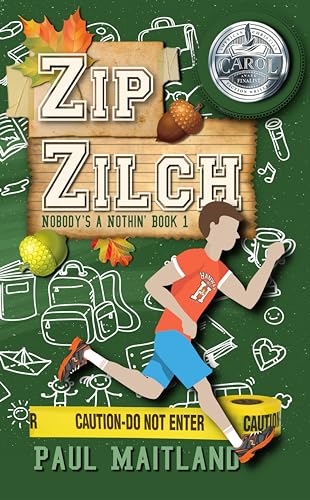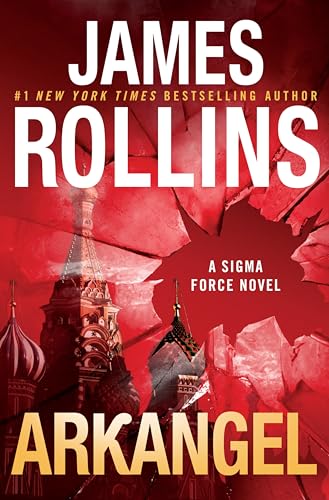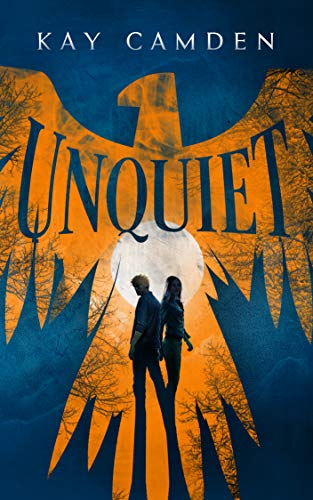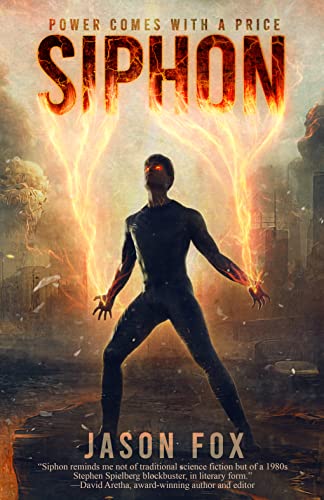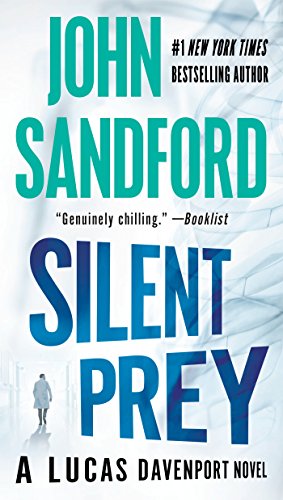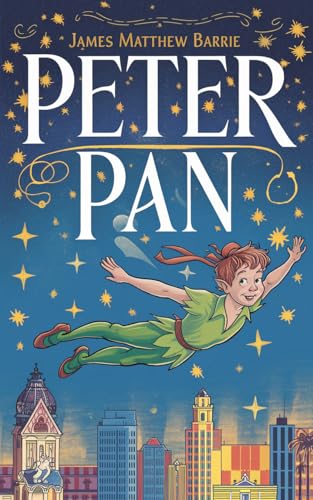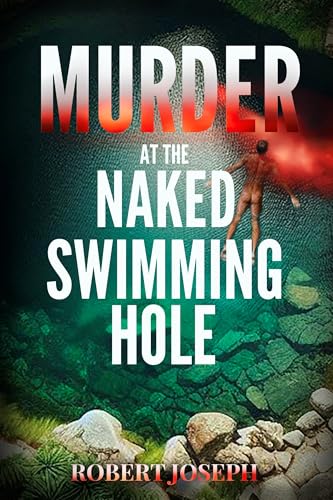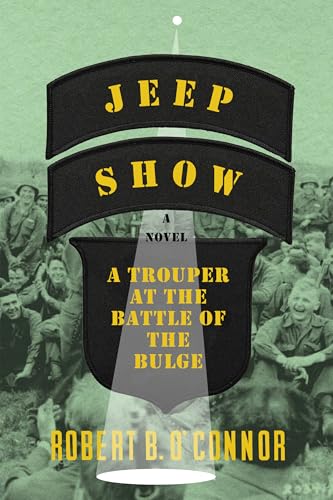Just the other day we announced that Noel Hynd’s suspense-filled REVENGE: MANHUNT IN PARIS! was our new Thriller of the Week and the sponsor of thousands of great bargains in the thriller, mystery, and suspense categories: over 200 free titles, over 600 quality 99-centers, and thousands more that you can read for free through the Kindle Lending Library if you have Amazon Prime!
Now we’re back to offer our weekly free Thriller excerpt, and we’re happy to share the news that this terrific read is still just $2.99 for Kindle Nation readers during its TOTW reign, or FREE via Kindle Lending Library!

US Air Force Lt. Richard Silva’s hell on earth begins in the fall of 1970 when his plane is shot down over North Vietnam. Silva is captured and taken to a POW camp where he is turned over to a shadowy interrogator who specializes in the systematic torture of American prisoners. Miraculously, Silva survives and returns to the US.
He finds an America that is profoundly different from the country he left. But America isn’t the only thing that has changed. Silva’s mind has been horribly altered. For him there is only one way out: Find the man who tortured him. Find him and kill him. With only a few clues to his enemy’s true identity, Silva embarks on a manhunt.
Silva quickly penetrates a shadowy underworld of politicians, criminals and intelligence agents in New York, Washington and ultimately in Paris. In France, he further burrows into a nether world of professional killers, political extremists, cops and assassins. Along the way, he finds romance with a beautiful young artist and rediscovers his own humanity, all the while drawing closer to the man he must murder in order to redeem his own soul.
This is a 2011 revised version of a novel originally published under the title “REVENGE” to rave reviews in 1976.
Reviews
“A notch above the Ludlums and Clancys of the world….”
“Noel Hynd knows the ins and outs of Washington’s agencies both public and private.” Publishers Weekly
“A Tense Bloody trail to a grim climax!” – Liverpool Daily Post
“An Intricate spine chiller….Bloody good!” – NY Times
“Ingenious and fast paced without a wasted word.” – Chicago Tribune
“A Powerful Book!” – The Scotsman
“Entertaining and absorbing!” – Birmingham Evening Mail
“Invites Comparison with ‘The Day of The Jackel’ – Boston Herald
Reader Comments
“Just read ‘Revenge: Payback in Paris’. Terrific read and if you’re a fan of Robert Ludlum, Lee Child or Daniel Silva, you’ll enjoy this book. It’s very gripping, well researched with some interesting twists.It’s a classic ‘one guy on his own attempting to right a wrong’ kind of story, but it keeps you interested throughout and is hard to put down. You always want to know ‘what happens next?”
P. Schmideg, Amazon – 5 stars“This is a very sharp thriller, written in the 1970’s when stories like The French Connection were before the public. I read this years ago and then updated to Kindle. Still a fine book, slam bang pacing and a fast exciting read”
Peter Wilhite, Amazon – 5 stars
“I just finished Revenge and I have discovered a new author. I can’t wait to read more of Noel Hynd’s books.”
Rita Marie, Amazon – 5 stars
And here, for your reading pleasure, is our free excerpt:
Prologue
On October 14, 1970, the pilot, co-pilot and six crew members of a United States Air Force bomber buckled themselves into position in their aircraft. They reviewed their assigned mission in the undeclared war waged by the United States against the Democratic Republic of Vietnam. The bomber’s engines roared to life. Moments later, accompanied by a fighter escort, the jet was airborne.
The airplane thundered eastward above the Pacific Ocean where Americans have warred with Asians for the better part of a century. It flew in its proper formation northwards from Guam, its home base, towards its intended targets forty miles south of the North Vietnamese capital, Hanoi.
Soviet ships, cruising in the international waters around Guam, spotted the formation of American aircraft. The ships radioed to their ideological allies. The peasants and militiamen in North Vietnam, rushing to their battle stations, knew when the sky above them would be heavy with enemy bombers.
The airplanes neared Hanoi at ten minutes past nine, Hanoi time. Ground anti-aircraft crews in the jungles and towns south of the North Vietnamese capital fired in well-disciplined patterns at the airborne invaders above them. Forty miles south of Hanoi, just above the hamlet of Den Bing, the giant bomber was racked with the hot exploding lead shot skyward from the defending guns below. The giant plane convulsed with the hit and began to lurch at an altitude of 45,000 feet. It became quickly and deathly apparent to the pilot and crew that their plane would crash within seconds.
Four of the eight-man crew were unable to eject. They died when the plane exploded in a thick forest. Major Ronald Mecili, the pilot and a veteran of forty-one previous missions, parachuted into a watery rice field where he immediately disentangled himself from his parachute. A hundred meters away, Airman First Class Leonard Lewis, a black man from Memphis, landed within sight of Mecili. The men, seeing each other’s chutes, crawled and scrambled towards each other, keeping their heads and bodies low so as not to make an alluring target.
Captain William DeMeo landed bruised and battered but not seriously injured two miles away. Captain DeMeo was disengaging himself from his chute’s confining cords when Lieutenant Richard Silva, at twenty-two the youngest member of the mission, hit the ground.
Silva winced in pain as soon as his body, dropping sixteen feet per second, crashed into the branches of a tree. But he did not know the extent of the injury until he had slashed himself loose from the tree and cracked down on the flat rocks below.
The left side of his uniform was soaking with blood. His hipbone and upper left leg had been splintered. The broken bones protruded through the torn flesh of his hip. He attempted to move. But the pain tormented him with an agonizing throbbing that made him wish he had ridden his aircraft to its fiery destruction miles away.
He gasped for life and tried a second time to move. When he knew he would be unable to stand, he attempted to crawl. He managed to pull himself along the ground with his hands, desperately seeking to reach a clump of bushes that might conceal him. Surely enemy soldiers would come looking for him. Richard was too obsessed with pain and fear to consider that the remains of his parachute, hanging splendidly from that tree, served as an excellent marker. The enemy would know just where to find him.
A dozen local soldiers came upon Richard less than two hours later. They beat him with heavy sticks. It wasn’t until they saw his leg that they knew he was already disabled. Richard thought he would be killed.
A local nurse was eventually called, and Richard was given bandages. Then two black-clad women made a splint out of a bamboo tree. His leg was placed in the splint, and they were beginning to carry off their captive when the sky was again rumbling with the roar of airplanes.
The loss of the bomber and its crew had set off a noisy rescue attempt. Richard’s leg, hip and groin were torturing him. His mouth was bone dry, and he pleaded for water. But because of the rescue planes above, his captors gagged him and temporarily abandoned him in a forest.
He lay there for five hours. He had no way of knowing that as he lay in agony under a tropical tree at the side of a dirt road, a U.S. air rescue team was pulling to safety two of the other three survivors of the crash.
Major Ronald Mecili and Airman First Class Leonard Lewis were plucked from the jungle. Mecili had a broken arm. Lewis, wearing around his neck a figa given to him by his sister in Tennessee, had escaped with nothing more than bad bruises and a few cuts. Lieutenant Richard Silva and Captain William DeMeo were, after an arduous five-hour search, declared missing in action.
Once the rescue planes had departed, Richard was taken from the forest by the soldiers and placed in an old Citroën truck that was a relic of the French campaigns of the 1950s. He was driven north on rocky rough roads. He was given enough water to preserve his sanity.
As the truck travelled through villages towards Hanoi, he was pelted by bottles, sticks and rocks. In three days, during which his wound remained untreated and his torment intensified, he was delivered to the Hoa Lo prison camp in Hanoi. Richard Silva was then asked to sign an admission of war crimes against the people of North Vietnam.
He refused.
Since prisoners were to be broken immediately if possible, Richard was beaten by guards and denied medical attention for several days. He was allowed a subsistence level of food and water and was not allowed to sleep for more than two hours at a time. His captors kept him isolated and continued to demand a confession. After ten days, delirious and beginning to come down with fever, Richard scribbled a few words onto a paper pushed in front of him.
“The United States,” he scribbled with a trembling feeble hand, “must end the killing.”
For his “confession,” Richard was permitted to see a doctor. His hip and leg were placed in old wooden braces, and he was given shots of antibiotics. He was then locked in a cell with a second prisoner. Richard thought he was hallucinating when he recognized Captain William DeMeo. But it was DeMeo. Alive and, considering the circumstances, unharmed.
Eventually the brace was removed. The wound, however, had not properly healed. The infected leg swelled relentlessly until Captain DeMeo, trying to keep his comrade alive, pierced the wound and tried to drain it.
Richard lay motionless by day and then shivered through the freezing nights at Hoa Lo, the camp that the prisoners-with the grim sense of humor that was critical to survival-had renamed the “Hanoi Hilton.” During those shivering nights, DeMeo and Silva slept together and shared a single torn linen sheet. It was DeMeo’s care as well as Richard’s own intense will to resist that kept him alive.
Richard gradually neared death over that winter of 1970, his body in endless agony. His strength ebbed. His wounds remained open and badly infected. Captain DeMeo frequently fashioned makeshift bandages from odd bits of cloth found around the prison. It was only his minimal medical attention that separated Richard from death by blood poisoning.
That following spring, in April of 1971, Richard’s pain began to subside. For no apparent reason he was taken to another cell where he was held alone. Then he was called before a lean, sad-eyed Vietnamese interrogator whom the prisoners nicknamed Grumpy, an understated and ironic comment on the man’s vicious disposition.
Grumpy spoke a smattering of cracked and incomprehensible English, but his command of the language-or lack of it-did not prevent him from being understood.
Grumpy began by speaking politely to Richard. He told Richard that if Richard would cooperate, his name would be placed on the list of prisoners of war. Richard had parents and a sister back in Massachusetts. They had no idea, six months after his plane had crashed, whether Richard was dead or alive.
“What am I supposed to do?” Richard asked.
“We pick an American to tell facts about the war,” said Grumpy in fractured English.
“Tell facts about Vietnamese people struggle against Yankee imperialism.”
“Shove it,” muttered Richard.
“You must cooperate,” said Grumpy.
Richard, lowering his gaze to avoid the piercing eyes in that mean sunken face, muttered a further word that was barely audible to Grumpy.
“Never,” he said.
Grumpy boxed Richard on the skull. Then Grumpy summoned two assistants from the next room. Richard’s arms were held behind his back and iron manacles were placed on his wrists. There were screws on the manacles. The screws were tightened right down to the bone. Then a rope was looped around Richard’s arms and his arms were pulled tight. The procedure continued until Richard passed out. Then when he was revived, the process was repeated on his swollen ankles.
“You must surrender and sign a statement,” Grumpy insisted as he stood like a vulture above Richard’s tortured body.
“Never,” Richard panted again in agony. He repeated over and over in his mind the words to songs, hymns, or prayers. Anything he could think of. He was made to kneel for two days. He refused to break. He felt it his duty to resist.
Then on the following morning, Richard was first faced with the Imp.
Grumpy returned with a small man with an olive complexion and dark almost catlike gleaming eyes. He was European and spoke French with an odd accent. Some of the prisoners called him Jacques out of deference to the language that he spoke with the Vietnamese. Other prisoners called him the Imp, a name that was more appropriate for the fiendish excesses of the short dark man.
Others had even less flattering names. But although none of the prisoners knew the Imp’s precise name, identity, or origin, they knew what he was. A torture expert.
Richard was left alone in a cell with the Imp.
“No one cares you not talking,” said the Imp in readily understandable English.
“I care,” muttered Richard.
“You are a prisoner,” said the Imp. “We can let you live or let you die.”
Richard remained silent. He began to think that this would be the final stage of his captivity. He was too stubborn to give in, too duty-bound not to resist. He would never allow himself, he thought, to be turned into a propaganda tool by his enemy half a world away from the peaceful beaches of Cape Cod where he had been raised.
“You will have to cooperate,” said the Imp. “It will be so much less painful for you. So much easier for everyone.”
“What do you want?” Richard muttered.
“You will sign and read a statement,” said the Imp. “Sign and read in front of film cameras.”
Richard looked up at the Imp. Then he spat into the Imp’s face.
The Imp pounded Richard across the head with a fist. Richard was made to kneel again on that torturously painful side that supported the broken hip. As he crawled to a kneeling position, the Imp smashed him again across the face. Teeth were loosened. Blood ran down his cheeks. Richard thought he would be beaten to death. He wasn’t far wrong.
The Imp placed Richard’s hands in those manacles behind his back. The Imp tightened the screws until the flesh was broken and the screws stabbed through to the bone. Then a rope was strung between Richard’s wrists. The Imp, holding Richard down with a foot on his shoulder, pulled the rope upward until Richard would scream in agony, thinking the Imp was going to pull his arms right out of their sockets. Eventually the Imp kicked Richard over onto the floor again.
“Now you surrender?” asked the Imp.
“Never,” said Richard between loosened teeth. “Never.”
The Imp continued the torture through that day, enjoying it. The next day consisted of hourly sessions of the same. Then the Imp substituted a hot wire for the rope. Richard continued to resist, even though he was nearly senseless.
For the four days that followed, Richard was beaten with a wooden club every hour around the clock. He was not allowed to sleep. By this time his body was a red and white sea of welts, scars and cuts.
Then on the morning of the fifth day, Richard began to break. He agreed to do whatever the Imp wanted.
For two days he was left alone, and a doctor was even sent to see him. The visible bruises and scars on his face were attended to so that they would not be conspicuous for a camera. He began to think. He knew that he had agreed to surrender and do what was asked of him. But he had not done it yet. Richard began again to resist.
He refused to discuss a statement when the Imp brought him a pencil and paper. In a rage, the Imp kicked him in the face. Then the Imp ordered him transferred.
Richard was dragged by the leg to another cell, which consisted of concrete on three sides and iron bars on the fourth. He was beaten inside that cell for several more days. Then one morning the Imp told him he was being given a last chance.
Another American soldier was placed on his knees outside the iron bars of Richard’s cell. The soldier was handcuffed and bound at the ankles. He too had been beaten mercilessly.
Richard looked at the soldier. Had Richard been capable of tears at that point he would have shed them. He recognized William DeMeo as that other soldier. One of the guards was standing over DeMeo, holding a pistol to his head.
“You want to save your friend’s life?” asked the Imp.
Richard looked up with imploring eyes that were crazed with fear and pain.
“You write a statement,” said the Imp. “Now.”
DeMeo managed to raise his head and look at Richard from the other side of the bars. DeMeo shook his head slowly and resolutely at Richard, indicating that Richard should not cooperate.
Richard’s gaunt searching eyes stared at the man who had saved his life. Then he looked back up at the Imp. The Imp gave a signal to the guard. Richard heard a short cracking pop. Then another. DeMeo had been executed. His body slumped to the dirt, his head ripped obscenely open by two bullets. Richard stared at his friend’s body.
“We leave his body here,” said the Imp. “You look at it until you make statement.”
Richard felt his sanity escaping him. The Imp was winning. Richard began to curse himself for not talking. He began to wish he, too, would be executed. The Imp was right. No one cared he was resisting.
Beatings began again the next day. Then the Imp promised to bring another American soldier to the same spot where DeMeo had been executed.
“We shoot one man a day until you make statement,” said the Imp. The next morning when a battered young blond soldier was dragged into the same spot, Richard cracked. He said he had talk before a camera.
“You keep word this time,” said the Imp. “If not, we kill ten more soldiers.”
Richard then wrote a statement that he was eventually forced to read and sign before a camera. The sequence was then released by the North Vietnamese to the world press. In many places around the world it was carried on television. In Massachusetts, it was the first indication to those who knew Richard that he was still alive. The date was June 10, 1971.
Richard was kept in solitary confinement even after writing an obviously contrived confession, reading it and signing it. He was given better food, however, but his leg was still painful. And even though the specter of the executed William DeMeo haunted him incessantly and almost destroyed his own will to live, Richard finally brought himself to beg for what he really wanted.
A doctor.
In August of 1971, he was placed in a hospital near the prison. X-rays were taken of his leg. The doctors discussed amputation, but decided against it. The shattered hip-bone and battered upper leg then received its first real medical treatment by the North Vietnamese doctors. It was ten months after the wound was first inflicted.
As his leg healed over the course of months, Richard gradually regained the ability to walk. First he could struggle on two legs with a cane. Then as more time went by, he was able to walk with a limp. The doctors told him the limp would last. Perhaps forever. It would be his lasting punishment for bombing civilians, they suggested.
Able to reason rationally again, Richard became aware of a new room in the Hanoi Hilton prison camp known to the prisoners as Disneyland. It was in this room where certain prisoners were now placed in chains. They were unable to move their hands or feet for days at a time. It was in this room, Richard knew, that the Imp was continuing his own brand of warfare.
The rumor around the prison asserted that the Imp had tortured to death a dozen men in Disneyland. The sudden absence of those soldiers after sessions with the Imp confirmed the rumors in a circumstantial way. All twelve names would remain forever missing in action.
Eventually Richard acquired a cellmate, an army lieutenant from Mount Vernon, New York. The man had been captured the preceding month, September of 1972. He was silent and in shock much of the time he was imprisoned. Richard struggled to help the man retain his sanity, just as DeMeo had struggled to help Richard. The lieutenant, a gaunt, intense young soldier named Howard McKiernan, talked sometimes coherently about the rumors that the war was almost over. There was an election coming in the United States. Surely, said McKiernan in one of his more lucid moments, the war would end before the election and the prisoners would be home by Christmas.
Yet there were certain prisoners who were not destined to go home.
On one October day, as rumors of the war’s conclusion buoyed the spirits of the POWs, the Imp attempted to break their will a final time.
The Imp singled out four men. They were placed in cells visible tothe others. Then, in what was to serve as an example, the fourwere subjected to wires, ropes, razor blades, shards of glass, floggings and starvation. Their anguished screams and groans were audible throughout the camp.
Then, after eight days, the four men were marched, pushed or dragged to the center of the camp. In full view of their compatriots, each of the four men took a rifle bullet through the brain. All four times, at close range, the Imp pulled the trigger. The last of the four to have his brains blown out was Lieutenant Howard McKiernan.
Then, with a spirit of hopelessness again prevalent at the camp, the Imp disappeared. Slowly, a few new prisoners arrived. And gradually the talk of the war’s conclusion returned. The torture sessions lessened with the Imp gone. Then they stopped completely.
The men knew. Something political was happening. Less than six months later, the men were going home. For almost all of them the agony was finally over. But not for Richard Silva. Throughout his torture, throughout his imprisonment, and throughout those executions, one thought alone had been growing with maniacal obsession.
Richard would find the Imp. And kill him.
Part One
Chapter 1
For Richard, the freedom that followed his release from prison was tempered by his obsessive desire to begin his mission of revenge. There was much for which Richard held the Imp accountable.
There was the personal torture. There was the execution of William DeMeo. There were the sixteen other murdered soldiers. And there were two other related deaths. Those of Mr. and Mrs. Raymond Silva. Richard’s parents.
In April of 1971 Raymond Silva, a carpenter who lived on Cape Cod, had died quietly and painlessly in his sleep. Richard’s father died an unhappy man. Richard’s name had never appeared on any prisoner of war list until July of 1971. Raymond Silva died thinking his only son was dead. Then four months later a woman with her mind on a grocery list failed to obey a stop sign at the access to Route Six in Massachusetts.
The woman hurtled through the stop sign with her Ford station wagon and sideswiped the car driven by Mrs. Raymond Silva, fifty-four, of Hyannis, recent widow and mother of a prisoner of war. Mrs. Silva was laid to rest beside her husband in a peaceful old cemetery in Provincetown, just yards away from some of the country’s first settlers. It fell to Richard’s only sister, Maureen, to inform her brother of the dual tragedy.
Richard learned of his parents’ deaths by long distance telephone upon returning to Collins Air Force base in March of 1973. The cheering children and the enthusiastic flag-waving adults who greeted the returning prisoners were hollow echoes to Richard. Richard knew that much of what he had loved as a child was gone. He did not want it to be. He would like to have seen his parents again for five more minutes.
It wasn’t fair. For this, too, the Imp would pay.
“I guess we just have to pick things up and continue as best we can,” Maureen said when she saw her brother for the first time. “What else can we do?”
Richard was silent. After his return, he was silent to many questions. Silent, but not unresponsive.
Richard came home again to Cape Cod, although coming home again was something that Richard would never be able to do. Home was where his parents were. Yet the house he had grown up in had been sold. There was a stranger sleeping in the upstairs bedroom where his mother had once hung white curtains and where his father used to discuss the Red Sox with him. Richard went back once to see the house. He swore he would never do it again.
His sister, three years his junior, had married a man one year his senior, a bland, inoffensive, and likeable fellow who hadn’t served in the army for reasons about which Richard had never cared to ask. Maureen Silva, who was now Mrs. Frederick Downes, had prepared a room in her new home for her older brother to stay in “for as long as it takes to get resettled.” Whatever that meant.
Frederick Downes, who did something involving numbers in a Hyannis bank, had no objections to the brother-in-law he’d never met moving in indefinitely. Downes, faceless and boring, was a generous man, except with the bank’s money.
In the first days and weeks back in Massachusetts, Richard would borrow his sister’s car and drive to a deserted section of the Provincetown shore line. Then he would walk. Alone. And with the limp that was his lasting memento of the war, he would also think. He would determine elaborate schemes for tracking down the Imp.
As the days went by, fantasy turned to practicality. Richard would ponder ways in which he could identify and then find the Imp. Each time he devised a method, he would examine it a second time. With his methodical, calculating and obsessive mind, he would pick apart each plan until it became impractical.
One conclusion was clear. He would never find the Imp without help. Whose help? Anyone’s. What Richard needed was a place to begin.
“You’re quiet again,” said Maureen. She, her husband, and her brother sat in the living room of the modest grey-shingled Hyannis house in late April of 1973. On the television, Walter Cronkite explained the instruments to be used on an impending space mission.
Waste of money, Richard thought, looking at the screen. Then he turned to answer his sister. “I’ve been thinking,” he said. ‘That’s all.”
“You really shouldn’t dwell on what it was like over there,” she said, alluding to his imprisonment.
“I was thinking about the future. Just the future.”
“Oh,” she said. She turned her attention back to the television. Downes’ attention had never swerved from it. Richard reached beside him and picked up a newspaper. It was his habit to read everything he could find. He wanted to know what had happened in all the time he was gone. And he wanted to know why it had happened.
On the seventh page of the Boston Globe a drawing caught his eye. It was the type of line drawing that police artists sketch from descriptions given to them by the living victims, if any, of crimes. The drawing was the likeness of a man who was subsequently arrested for a series of thirteen rapes in the greater Boston area. Beside the drawing was the man’s actual photograph.
“Boston hasn’t changed a bit,” Richard noted wryly. “Still has the best sex crimes in the United States.”
But instead of dismissing the article as he might often have, Richard continued to read. The article was about a police artist named Kermit Kelly. Kelly, in the Boston police headquarters building on Berkeley Street, sketched six to ten faces per day, compiling them from descriptions given by witnesses or victims. Often the drawings proved valuable in solving crimes. Often they did not. But always, said the article, Kelly provided the police somewhere to begin.
Somewhere to begin. A drawing.
Richard read the one column on page seven and then turned on to page thirty-four where the article continued. He read that Kelly had once aspired to be a commercial artist, but had taken a job with the police force out of financial necessity in the early fifties. And although a new computerized device was imperiling the jobs of police artists like Kelly, there continued to be a need for officers who could transform a witness’s words into pictures.
Richard turned back to page seven. He looked at the drawing Kelly had made. He looked at the photograph of the arrested man.
The drawing made the man look heavier than he was. The eyes were narrower. But the nose approached perfection and the hair style was the same. In all, the likeness was remarkably accurate.
Richard folded down the paper and laid it alongside his chair.
“What are you reading?” his sister asked.
“Do me a favor,” he answered.
“What?” she replied.
“Lend me the car again tomorrow,” he said.
Downes turned and looked at Richard.
“Where are you going?” she asked.
“Boston.”
“Should I ask why?”
“I might have a job lined up,” he lied. “I don’t know yet. I have to go into Boston to see a few people.”
“Why didn’t you say so?” she asked.
“I’ll have someone else drive me to work,” Maureen said. “Take the car.”
Chapter 2
Richard drove from Hyannis to Boston in less than two hours. Upon arrival in Boston, he bought a city map. He found the location of the main police station on Berkeley Street, the building in which Sergeant Kelly could be found. It took another half hour to inch through the traffic to Berkeley Street. Then there was the matter of parking.
“A lousy place to park illegally,” muttered Richard to himself. Every empty parking place was flanked with either a yellow line on the curb, a driveway, a hydrant or a bus stop sign. Richard finally left the car in a metered space on Berkeley Street. He walked to the police headquarters. It was a quarter past twelve. Lunch for some.
In the main lobby of the police headquarters there was a uniformed officer in a glass booth. It was impossible to pass him without being seen. No doubt, Richard thought skeptically, the Black Panthers would announce themselves before calling on the commissioner.
The uniformed cop in the booth was already watching Richard from behind a plate of apparently bulletproof glass. Richard noted that the police in American cities, like infantrymen, had to secure themselves against guerrilla attacks.
“Can I help you, sir?” asked the cop, diverted from the crossword puzzle he had been working on.
Richard had aged in prison. Before he was captured few people had called him, “Sir.”
“I’m looking for Sergeant Kermit Kelly,” said Richard.
“Do you have an appointment?”
“No,” said Richard. “But it’s important.”
The officer eyed him and then picked up a black telephone. He dialed three numbers.
“Name?” asked the cop.
“McKiernan,” said Richard, choosing a name to match the occasion. “Howard McKiernan.” The young prisoner from Mount Vernon, Richard’s final cellmate, would never know that his name had been borrowed.
The officer in the glass booth mumbled something to Kelly. Then he looked up.
“What’s it about?” the cop asked.
“Sorry,” said Richard. “I’m only talking to Sergeant Kelly.”
“He’s on his lunch hour,” said the cop. “Can you come back at one thirty?”
“No,” said Richard. His response caught the guard and Kelly, who was on the other end of the line, by surprise.
“He says he can’t come back,” said the guard. Richard complimented himself on a good show of strength. The guard continued to speak on the telephone to Kelly. Then he put down the phone and looked up at Richard.
“Go on back,” said the cop. “Room oh-five-seven, ground floor. Take the corridor down there,” he added with an indication of his hand. “Take it all the way to the back. Kelly will talk to you now.”
“Good,” said Richard. “Thanks.”
The guard made no reply.
Richard crossed the concrete lobby and passed through the door that led to the east-wing corridor. Richard followed the grey hallway on the other side of the door and passed several small rooms, all numbered. Some doors were open. Others were not.
Through a few of the open doors Richard saw cops in blue shirtsleeves sitting in rooms littered with papers, files, and battered cardboard coffee cups. Other uniformed police bent over files or mug-shot books. Richard followed the descending numbers on the doors until he came to one marked 057.
At a desk cluttered with pens, pencils and a half-eaten sandwich, was a red-haired, red-faced Irishman with a scowl on his face. Kelly was reading a newspaper as Richard entered the room. Kelly’s eyes were glued angrily to the coverage of the Bruins loss to the New York Rangers.
“Yes?” asked Kelly looking up suddenly.
“I’m looking for Sergeant Kelly,” said Richard.
“No one here by that name,” replied Kelly. Richard looked at the name plate on the desk. “I’m Detective Sergeant Kelly,” muttered Kelly with a mouthful of his sandwich. He slammed his newspaper onto the side of his desk. “And I’m also on my lunch hour.”
“This may come as a surprise to you,” said Richard calmly, “but I don’t really give a crap whether you’re on your lunch hour or not.”
Kelly looked at Richard through squinting eyes. “What’s your problem, kid?” Kelly finally said. “My day was complete before you came in.”
“I want you to do something for me,” said Richard, speaking in the regional Massachusetts accent that they shared.
“What?” asked Kelly.
“Draw a picture.”
“What are you, smart-assed or something?” snapped the cop. “I sit here all day and draw pictures.”
“Then I came to the right place.”
“You think I haven’t got enough to do?” Kelly asked. A patrolman looked into the room, saw Kelly was busy, and left again. Kelly was about to call after him. But Richard spoke first.
“If we cut the comedy,” Richard said soberly, “I’ll tell you who I want a picture of.”
Kelly turned his attention back to Richard. “Before you waste your breath, have you reported the crime yet?”
“It didn’t happen inBoston,” said Richard.
“What are you bothering me for if it didn’t happen in Boston?”
“I’m bothering you because I need your help.”
“I can’t do anything until I get your case referred to me by Precinct Command. Even if some bastard raped and killed your paraplegic grandmother ten minutes ago, I can’t listen to you till Precinct Command tells me about it first.”
“That may be so,” said Richard calmly, “but I’m not leaving until I tell you about it.”
Kelly looked harshly at Richard, then shook his head.
“I get all the nuts. What the hell’s your problem?”
“I’m twenty-five years old,” said Richard, “and I just spent the last two and a half years of my life in a North Vietnamese shit-hole called Hoa Lo. You know it by the name of the Hanoi Hilton. I was there since my jet crashed in 1972.”
Kelly’s eyes drew a bead on Richard. “Are you leveling?” asked Kelly.
Richard nodded.
“What did you say your name was?” asked Kelly.
“Howard McKiernan,” said Richard.
“Keep talking,” said Kelly. “I’m almost starting to like you.”
The hard Irish eyes were softening. And as Richard began to tell the veteran cop about the Imp, about imprisonment, about torture and about Captain William DeMeo, he was acutely aware that Kelly was listening.
Richard, sensing now a fully sympathetic audience, dwelt on how the manacles screwed into the wrists and ankles and how twelve Americans were assumed to have been tortured to death by the Imp.
“The little gook bastard,” Kelly finally muttered when the story was concluded.
“He wasn’t a gook,” said Richard flatly. “He was Caucasian.”
The cop wrinkled his face in a gesture of both distaste and confusion. “White?” he asked.
“Most Caucasians are,” said Richard. “White and probably French. Some sort of European Communist. He pulled rank over those slopes. They’d obviously imported him from somewhere else to break people. As soon as peace was in sight, he cleared out. I figured that out after I got back to the United States.”
Kelly was nodding. Richard knew he had hooked him.
“But you don’t know who he was?” asked Kelly. “A name? A definite country?”
“Nothing,” said Richard. “Not even a picture. That’s why I’m here.”
There was an uneasy silence as Kelly looked at the young man seated before him.
“Oh, I get it,” he said. “You want me to draw him.”
Richard nodded.
“What for?” Kelly snapped.
The words leaped out of his mouth. “I’m going after the guy,” said Richard.
“What do you mean by ‘go after?'” asked Kelly.
“What do you think it means?” said Richard. “I have a score to settle.”
“Are you sure you came back from that place with all your screws nice and tight?” asked Kelly.
“The Air Force psychiatrists thought so,” said Richard, “even if you don’t. Look, are you willing to draw a picture of the guy or not? There must be other men who-”
“Now hold it, just hold it,” snapped Kelly as he held up a beefy hand. “I’ll let you have your picture. You just have to tell me one thing.”
“What’s that?”
“Are you planning to kill the bastard?” Kelly managed a sympathetic smile as he waited for Richard to respond.
“You can think what you like,” answered Richard. “But I’ll settle my score with him outside the city limits of Boston. It won’t concern you at all.”
“You’re serious, aren’t you,” mused Kelly in softer tones. “You’re out to kill the punk.” Kelly paused thoughtfully. “How are you going to find him?” he asked.
“I’m starting in Washington,” said Richard. “If I have information and a picture, I might be able to find out who he is. From there I might be able to find out where he is.”
“Son of a bitch,” muttered Kelly in open admiration. “The bastard deserves whatever he gets from you.”
Richard restrained a smile.
“Start telling me about him,” said Kelly. “What about the shape of his head? A point? Any horns?”
Kelly picked up his pad and a pencil. He listened to Richard and began to draw.
Continued….
Click on the title below to download the entire book and keep reading
REVENGE: Manhunt In Paris!

